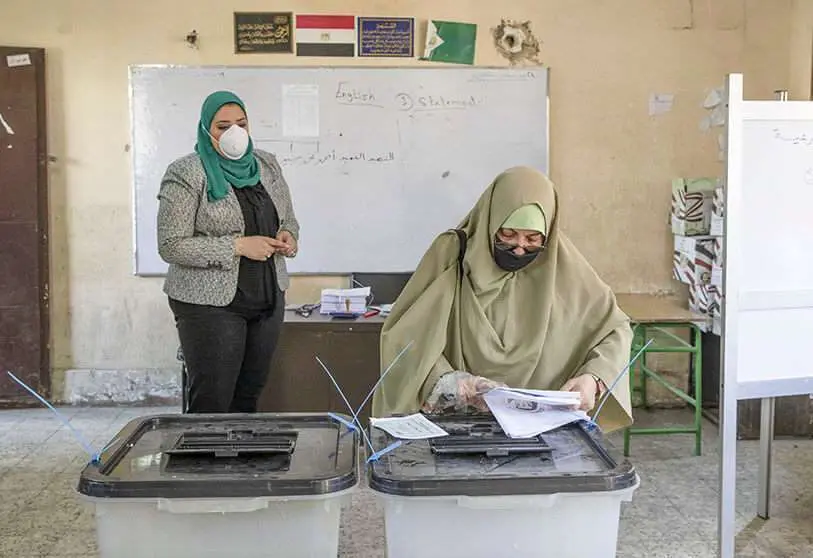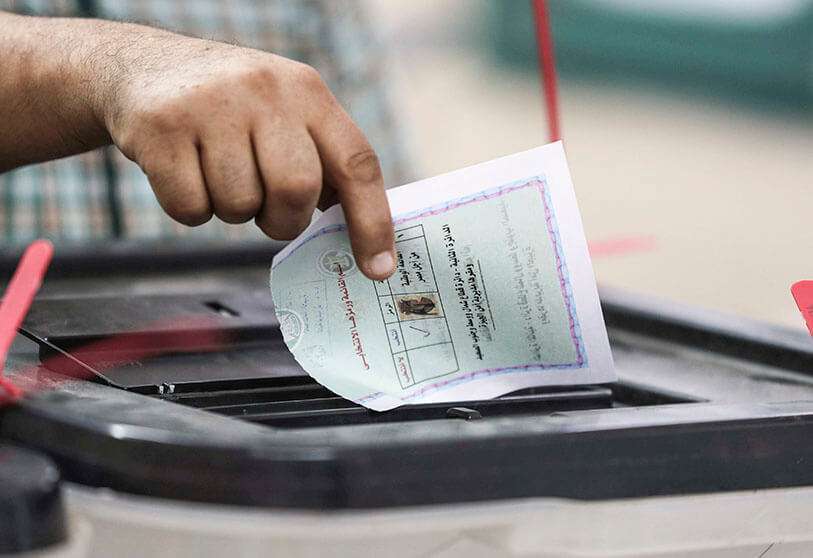Egypt recovers the Senate seven years after it was dissolved and holds elections at the height of the pandemic

From this Tuesday and throughout this Wednesday, Egypt celebrates a Senate election, a House that will be reconstituted for the first time after its dissolution in July 2013. 63 million Egyptians are called to the polls. The results are expected in a week's time and a second round will be held in September. The upper house of Parliament was abolished after the dismissal of Islamist Mohamed Mursi, the first democratically elected president, when it was called the Advisory Council. In April 2019 it was restored through a constitutional review, which, although controversial, was adopted by referendum with broad support.
In these elections, which are marked by the restrictions and controls typical of voting in times of coronavirus, 200 of the 300 seats are at stake. Of these 200, 100 are elected by universal suffrage through political party lists and the other 100 from non-party affiliated candidates. The remaining 100 senators are handpicked by President Abdel Fatah al-Sisi. Candidates for seats in the upper house of Parliament are essentially supporters of the head of State.

The Senate has little influence on Egyptian political life. Senators elected to the Senate will serve a five-year term, and the country's legislation requires the election of at least 10% women. The Senate's mission is "to examine and propose what can strengthen the pillars of democracy, support social peace and the foundations of society," explains deputy Mohamed Abu Hamed to the AFP agency. Therefore, the Senate, unlike the House of Representatives, does not have legislative powers and has a consultative role.
Al-Sisi came to power after a military coup against Islamist Mohamed Morsi in 2013, amidst massive protests against his regime. Since then, Al-Sisi has presided over an unprecedented offensive against dissent. Egypt's latest constitutional amendments extended the term of a president from four to six years, allowing for a maximum of two terms. Human rights groups have reported that the libertas acquired after the 2011 uprising have been increasingly pushed aside. For this vote, the authorities have forced the use of the mask in and inside the voting centers. Currently, Egypt has a decrease in the number of infections in recent weeks, for a total of 95,492 cases and 5,009 deaths out of a total of more than 100 million citizens.








